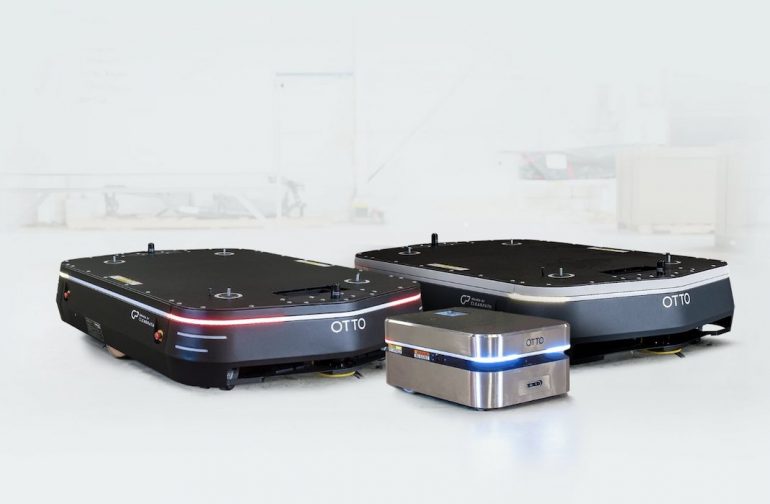Otto Motors, the industrial division of Clearpath Robotics, has expanded its operations in the Japanese market with a partnership alongside Japan-based trading company Altech.
Based in Kitchener, Otto Motors produces self-driving technology and vehicles that move materials within manufacturing and warehousing facilities. Altech is a trading company that imports advanced machinery and equipment from Europe and the United States (US) to support Japanese industrial companies.
“Our innovative self-driving vehicles have been helping modernize factories.”
The two companies announced their partnership at RoboDEX2020, an annual robot development and application expo currently being held in Tokyo.
“This is a big moment for Otto Motors,” said Richard Baker, Otto’s chief revenue officer (CRO). “Our innovative self-driving vehicles have been helping modernize factories throughout the United States and Canada since 2015.”
“Altech has a proud history of providing high-quality technology products and services to our customers,” added Hidehiko Suyama, executive director of Altech. “Now, we are proud to be the first to bring Otto Motors products to the Japanese market, where we know there is great demand across several industries.”
Otto Motors actually entered the Japanese market in 2018, with CRO Baker noting “several successful deployments completed.” The partnership with Altech will see the division of Kitchener-based Clearpath Robotics expanding its efforts in Japan.
RELATED: Avidbots partners with US provider to deploy floor-scrubbing robots in hospitals
According to a recent report from ABI Research, the global robotics market is set to transform over the next 10 years. It predicted a total robotics market valuation of $277 billion USD by 2030, with mobile robotics, like with Otto offers, overtaking the traditional industrial robotics market by 2022.
Japan, itself, plays a large part in that both as a leading manufacturer and adopter of industrial robots.
Otto Motors noted, “demand in Japan will be particularly high because of the country’s demographic inversion. Having fewer young people than older people means that there is not enough labour supply to do all the work needed to power the economy. Japanese manufacturers must rely on self-driving vehicles and other forms of industrial automation because there simply are not enough humans to do all the work that needs to be done.”
Otto Motors and Altech have already begun working together and have customers in the automotive, logistics, food and industrial equipment industries. The companies pointed to one such customer, HIROTEC an automotive parts supplier to Mazda, which reportedly installed three Otto self-driving vehicles at its Hiroshima plant to deliver Mazda door panels to welding cells. HIROTEC was also a customer of Otto, prior to the Altech partnership, using the robots at its American plant.
According to Otto Motors, 75 percent of the robots it has deployed are located within Fortune 500 companies.
Parent company Clearpath Robotics, founded in 2009, develops autonomous robots for a wide range of industrial purposes. In 2016, the company raised $39 million CAD in Series B funding, led by Inovia Capital.
Image source Otto Motors via Twitter


